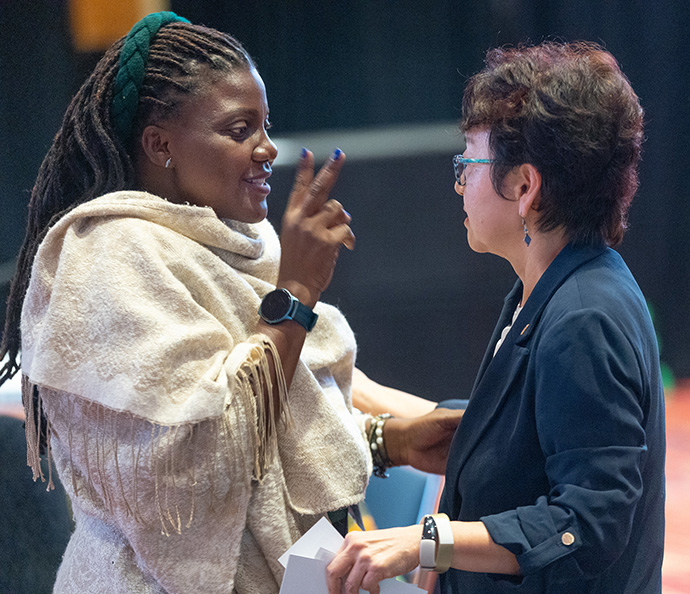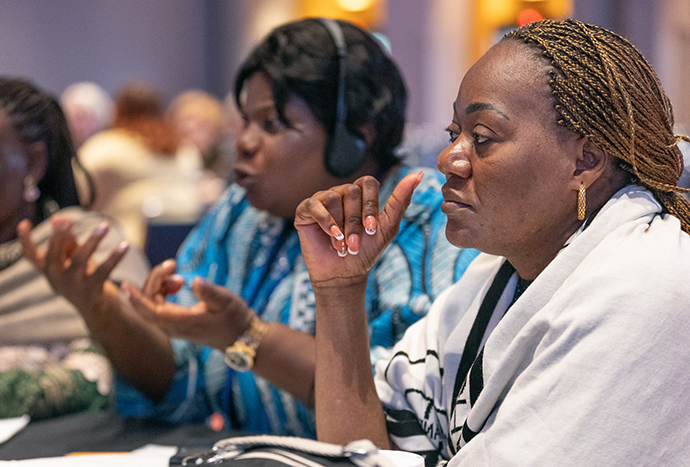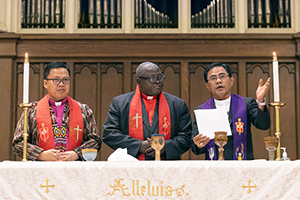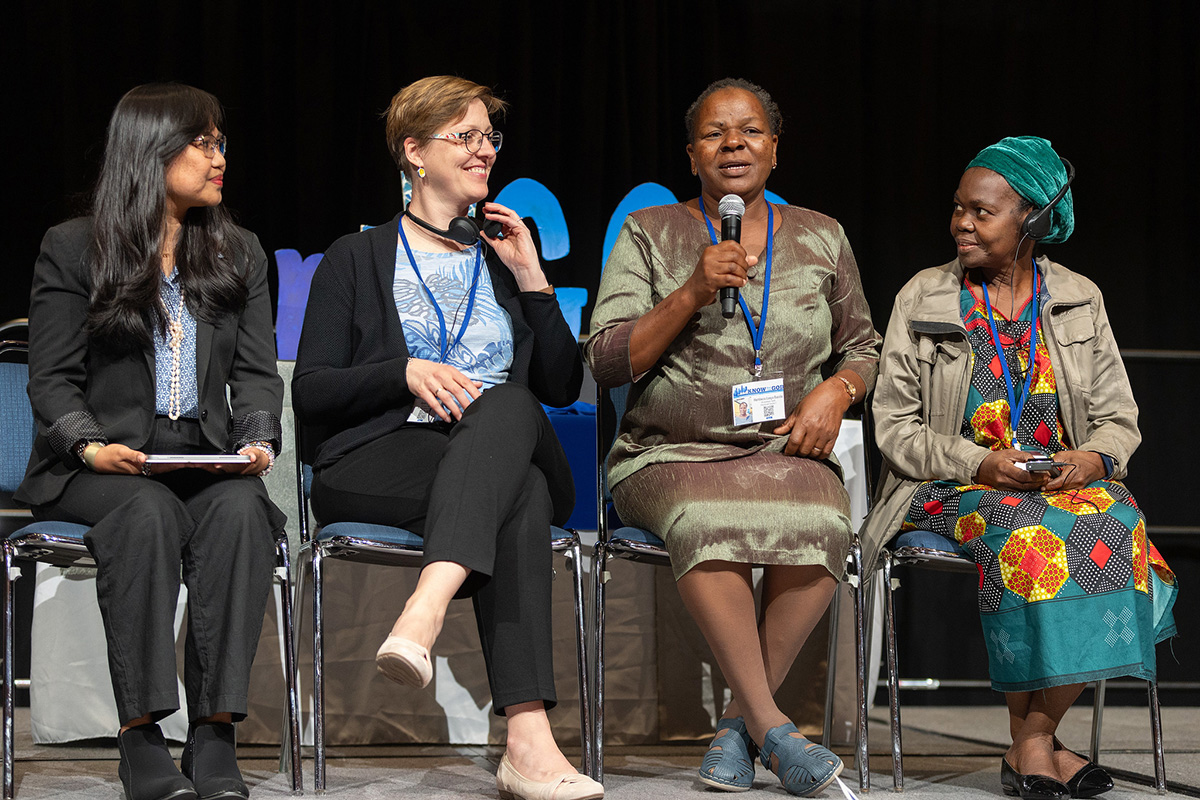Key points:
- Special orientations reminded General Conference female delegates that they have voice and power at the legislative assembly.
- Delegates say the appointment of monitors ensures they are treated with respect and empowers them to participate in meetings.
- Women learned how to decode petitions and address the conference and were reminded of the importance of supporting one another other.
Female delegates to the long-awaited 2020 General Conference were assured of the freedom to participate in deliberations without fear of harassment or prejudice.
The United Methodist commissions on the Status and Role of Women and Religion and Race appointed two monitors to sit in each legislative committee meeting to ensure women and ethnic minorities can express themselves freely as they help decide the future of The United Methodist Church. The monitors will be introduced at the start of each meeting. Women were urged to report to them or the General Conference office if they feel harassed or disrespected.
Angele Kabamba, a four-time delegate from the North Katanga Conference in Congo, sits on the finance committee. She applauded the move, saying it would empower women as it guaranteed their voices were heard.
“As women,” she said, “we must respect ourselves, and men are supposed to respect us. In many gatherings, there are people who just come to do inappropriate things. They know that they can mistreat women, and nothing will happen.”
United Women in Faith and the Commission on the Status and Role of Women held orientations April 20 and 22, first for female delegates from Africa, Europe and the Philippines, and then for all women.

“I appreciate that Status and Role of Women and United Women in Faith conducted orientation for female delegates from central conferences and taught us that, as women, we have power,” Kabamba said. “We were taught how to conduct ourselves and that our language has to be respectful to others.”
She said she believes the presence of the monitors will encourage more participation from female delegates whose numbers have increased in recent years.
Subscribe to our
e-newsletter
“In the past,” she noted, “women were very few and poorly represented, but in our annual conference, the church is encouraging equal representation when electing leaders.”
Appointed monitors will give regular updates of any reported incidents of inappropriate behavior, including unwelcome touching and disrespectful language.
“If you see something, say something,” the delegates were advised.
The Rev. Hortencia Lange Bacela of Mozambique, who serves on Status and Role of Women, said women were encouraged to speak and to express themselves.
“They were taught about the importance of being a delegate and the responsibility of the position,” Bacela said. “This was a learning time, a time to create new relationships for women who met for the first time in Charlotte.”
Bacela said the monitors were important to motivate both the delegates and the presiding chairpersons to work together toward achieving holy conferencing.

Juliet Nabukalu of the Uganda-South Sudan Conference, a reserve delegate attending General Conference for the first time, found the orientation valuable.
“The facilitators listened to us,” she said, “and explained all that we wanted to know. They answered questions in a way that we understood.”
She felt empowered after the program. “In nature, especially for us African women, we have a problem of pulling back instead of facing a problem,” Nabukalu said. “Sometimes, we are afraid to speak out, and we were encouraged to express ourselves.”
Four female panelists from Angola, Mozambique, the Philippines and Germany shared their stories about how they found their voice as leaders to inspire and empower the delegates. They encouraged their counterparts to support each other as they make important decisions regarding the future of The United Methodist Church.
The orientations included educating attendees on how to decode petitions presented before the legislative assembly and how to address the conference, as well as highlighting petitions that the agencies are presenting that affect women and children, especially girls.
The top executives of Status and Role of Women and Religion and Race, Dawn Wiggins Hare and the Rev. Giovanni Arroyo, respectively, encouraged all delegates to observe the conference code of conduct when General Conference opened April 23.
Guiding principles for ideal holy conferencing include love, justice, respect and dignity.
Chikwanah is a correspondent for UM News based in Harare, Zimbabwe.
News media contact: Julie Dwyer at (615) 742-5470 or newsdesk@umnews.org. To read more United Methodist news, subscribe to the free Daily or Weekly Digests.





